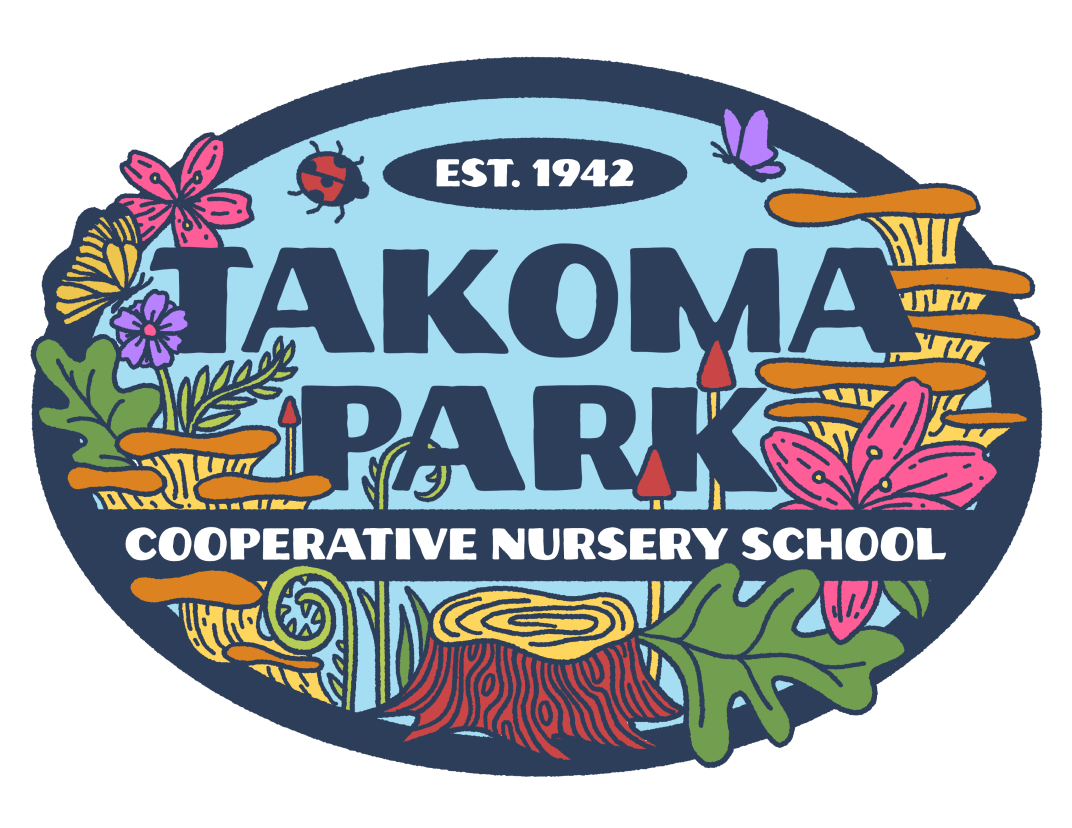The Democratic Process in Our Cooperative Model School
Crafted in 1942 our school’s bylaws outline in twelve articles and seven pages, our mission and education model, our definition of membership, and how that membership will sustain the organization’s business of educating parents and children. A handful of amendments beginning in 1976 have refined these bylaws adding a revised mission statement, financial management, further defining membership and voting processes.
A few of the articles refer to a document called the “membership rules and regulations.” This separate document is more detailed and is improved upon and edited fairly often. These rules and regulations help newly joined members get their bearings in how things run and how decisions are made. So the bylaws guide governance while the membership rules and regulations guide practice. Members use these to find out what the organization’s expectations are, not just in terms of paying tuition, but in taking responsibility for their own contributions and actions in order to make the overall experience work for everyone involved.
The school, and most cooperative schools, has been able to maintain consistency with minimal hired staff and ever-changing ownership as parents join the school and then leave as their children grow.
While the bylaws are pretty run-of-the-cooperative-mill (they are probably very similar to other cooperative school’s bylaws) the membership rules and regulations are unique to our community of parents, children, and staff. These are not invented out of thin air or adopted from internet searches. Rather, each rule is hashed out, mulled over, and considered carefully through a democratic process that begins with brainstorming and information gathering, vetted with multiple drafts, and then voted in by the Board of Directors with approval from the membership. The BoD are elected from the membership by the membership. Parents and parents. Parents own the school and work to sustain the school. The membership is constantly changing over so these documents become very important. That said, the membership always includes a wide variety of skill sets to make this whole venture more viable. Have a question about legal implications of an open parking lot? What about landscaping? Painting? Zoning ordinances? We have an expert we can turn to and because of the democratic process we employ, if we don’t have an expert in something, we will work until we are the experts!
A membership meeting working session.
Just in terms of running the school, there are monthly all-membership meetings. These are matched with monthly board meetings and many of the committees also meet monthly and have regular work sessions. We use membership meetings to deliver parent training, but we have found that team building and formal brainstorming around sometimes sensitive subjects of managing a school is time well spent. These sessions prove invaluable in shaping what the founders hoped would be a cohesive community of children and their parents and teachers.
This democratic process and communal problem-solving can also be found in the classroom. The children share this experience with the adults.”Meeting” and “cooperating” are among the “Big Concept” vocabulary words used regularly by the children of our school. We have formal exchanges that take place daily during our circle and then other large and small discussions that take place before and after dramatic play sessions (this is the scaffolding bit). And you can see the children holding their own meetings all throughout their school day.
Meetings and negotiations become part of the fabric of the classroom.
This idea that each person has a voice and there is room for that voice to be heard means that there is a constant infusion of diverse viewpoints within the context of a common language guided by the bylaws and rules and regulations. These strengthen the organization.
During our last Tink session, we practiced a new set of what we call “Together Games.” We use these games before beginning dramatic play sessions (and sometimes after) during the school year. They are basically team-building games. Inspired, one of our camp staff members introduced a game she had taught children in El Salvador called “Back-to-Back” and one of the campers taught the other children a game called, “All my Friends and all my Neighbors.” These were great fun and incredibly successful. Without establishing the simple fact that your ideas matter, these games may have been kept out of the conversation.
The democratic process is the foundation of our governance to be sure, but the practice is infused from our youngest to oldest members.
It’s her turn now. One of the Tink campers teaches the other children how to play a game she knows called “All my friends and all my neighbors”
We regularly ask the nursery school children about their experiences. “What works for you and what doesn’t?” is the prompt. This photo shows the written suggestions from one of our Tink campers. “What worked and what would make your experience better?” was the prompt they used to help us build a better program next year.




